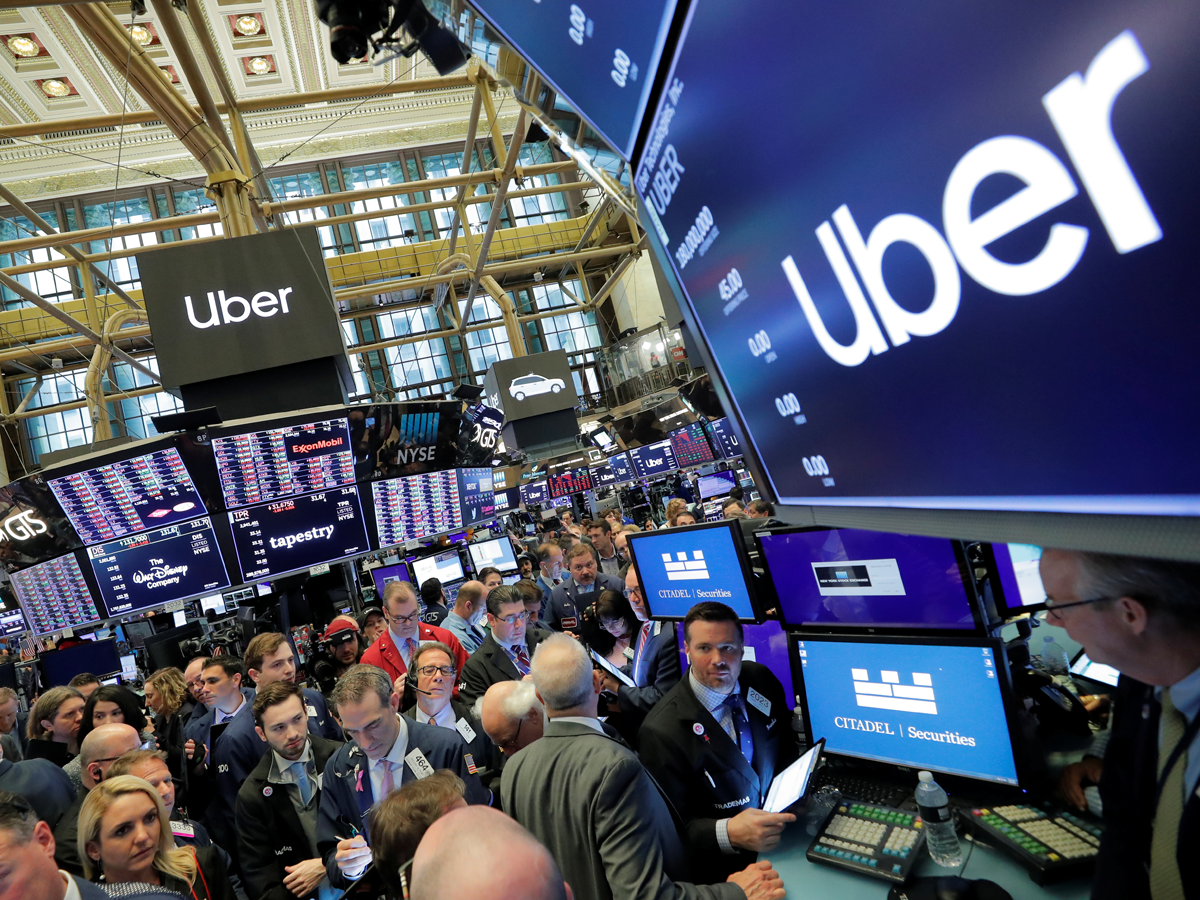INSUBCONTINENT EXCLUSIVE:
Uber Technologies Inc's shares made a disappointing market debut on Friday, marking a rocky start for the most anticipated initial public
offering of the year as other high-profile startups such as Slack and WeWork look to go public.
The fall in shares undermined Uber's
strategy of pricing its oversubscribed IPO conservatively at $45 per share to avoid a repeat of rival Lyft Inc's stock market struggles
following a strong debut in March.
The company's shares opened at $42 and fell as much as 9% to a low of $41.06 in early trading before
recovering most of their losses to trade down 2.5% at $43.92 by 1805 GMT
Lyft was down 4%, well below its IPO price.
Uber's IPO comes against the backdrop of a spike in trade tensions between the United States
and China that has weighed on financial markets and increased investor skepticism about its ability to turn profitable soon enough.
Chief
Executive Dara Khosrowshahi, who was on the NYSE trading floor to mark the debut, tried to calm investors by pointing to the company's
growth prospects and expansion plans.
"My reaction (to the share price) is if we build and build well, shareholders will be rewarded
We're certainly not measuring our success over a day, it really is over the years," Khosrowshahi said.
The IPO was a landmark moment for the
decade-old company, which was started after its founders struggled to find a cab on a snowy night and grown into the world's largest
ride-hailing company, making more than 10 billion trips.
Khosrowshahi was accompanied by a team of Uber officials at the NYSE to celebrate
the start of the company's life as a listed entity
Co-founder and former CEO Travis Kalanick, who resigned in 2017 under pressure from investors, was also seen on the trading floor.
The
company's road to IPO was marred by several hurdles including increased regulations in several countries and fights with its drivers over
wages.
Uber has said that it has the potential to grow not just in the cab hailing business, but also as a "superapp" to provide a variety
of logistic services, such as grocery and food delivery, organizing freight transportation, and even financial services, much like Grab, its
Southeast Asian counterpart.
But market experts have struggled to find value in a company that has consistently posted losses, and warned
that it may never actually be profitable.
"The business is unprofitable, new entrants can enter the market, there is potential regulatory
risk, and it is very price sensitive
What is there to like about this opportunity" Robert Johnson, professor of finance at Heider College of Business, Creighton University in
Omaha, Nebraska said.
Uber's debut and its coming days of trading will be closely watched by other high profile startups looking to tap
into public money, including flexible office space firm WeWork and workplace messaging app-owner Slack Technologies Inc
Both companies have confidentially filed for IPOs.
As a private company, Uber has raised more than $15 billion from investors to fuel its
growth and expansion into food delivery and freight hauling, with little regard for turning a profit
Uber reported a loss of $3.03 billion in 2018 from operations.
"We are willing to give quite a bit of rope and leeway on current
profitability if you can show how you're going to get there," said Jordan Stuart, a portfolio manager at Federated Kaufmann who often
purchases companies' shares during an IPO.
As a public company, Uber will have to deal with quarterly earnings reports and demands from
shareholders to plot a path to profitability.
The company weathered controversies including the unearthing of a culture of sexism and
bullying at Uber and a United States Department of Justice investigation, which culminated in the resignation of Kalanick
Uber eventually hired Khosrowshahi to lead the company.

